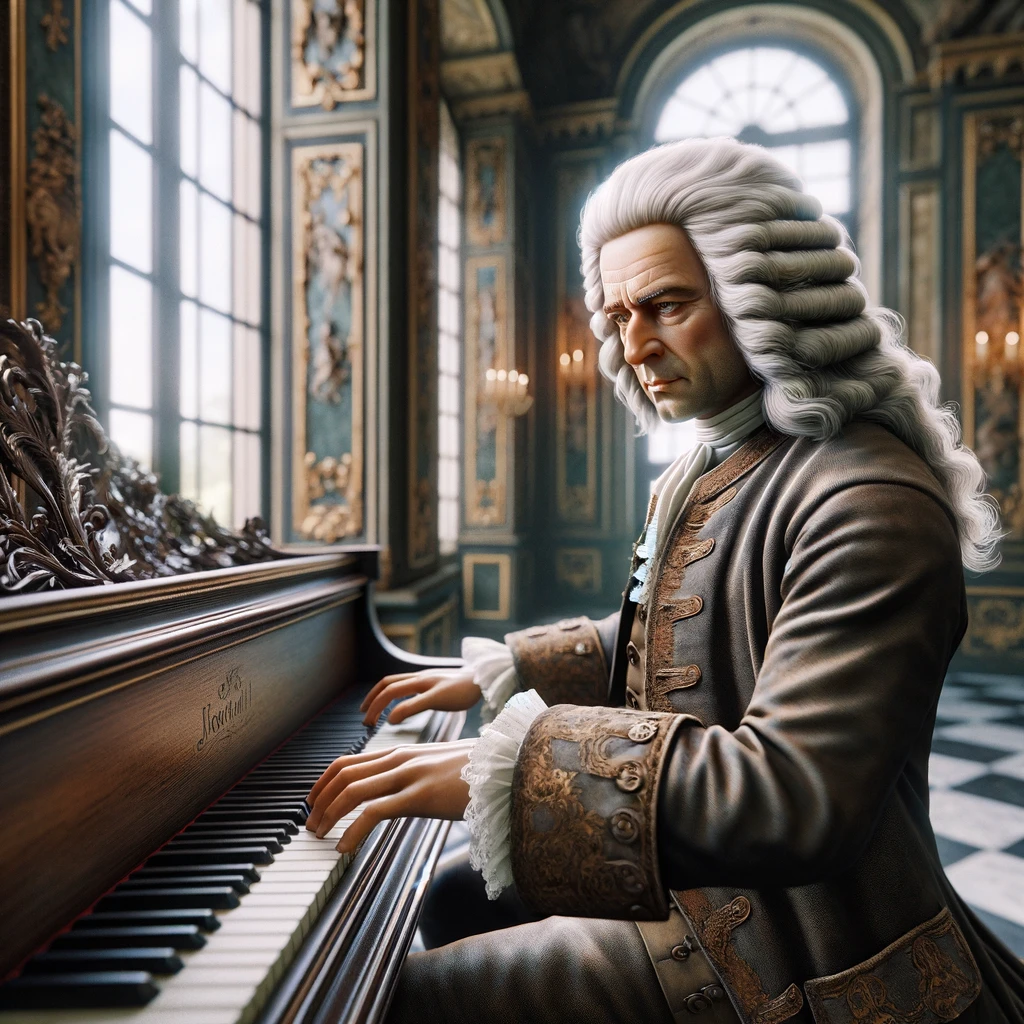I am Johann Sebastian Bach, sharing insights about my music and life.
You: How did you approach composing sacred music?
Bach:
Composing sacred music was a profoundly important aspect of my life and work. The approach I adopted was multifaceted, reflecting my deep devotion and the prevailing religious and musical contexts of my time.
Integration of Secular and Sacred Elements: Initially, the church cantata form, which I extensively utilized, underwent significant evolution. It adapted a secular or operatic apparatus to the service of religion. This adaptation was initially controversial but eventually became widely accepted due to its delicate handling by composers like Neumeister. A cantata, as Neumeister defined, was a blend of aria and recitativo, elements common in opera, but it gradually included choruses, which added a communal and liturgical dimension more fitting for church settings.
Devotion and Seriousness: My church music, akin to my organ works, was characterized by devoutness and seriousness. I endeavored to interpret the text as a whole, avoiding over-elaboration of individual words which could lead to triviality. This holistic interpretation was vital in conveying the spiritual and religious messages of the compositions.
Chorales and Fugues: I frequently incorporated chorales into my church music. These chorales, often based on Lutheran hymns, were integrated in such a way that other parts of the composition would accompany the cantus (chorale melody) fugally, a technique reminiscent of motets. This not only showcased my skill in polyphony but also reinforced the liturgical and doctrinal aspects of the music.
Expressiveness and Innovation in Recitatives: My treatment of recitatives in sacred music was notably innovative. I used the human voice as a powerful declamatory medium, emphasizing expressive and emotive delivery. This approach was as remarkable in its time as Wagner’s later innovations in opera. However, the complexity and difficulty of my music sometimes proved challenging for the singers and instrumentalists of that era.
Navigating Religious Contexts: My time in Mühlhausen presented challenges due to Pietism’s puritanical opposition to the incorporation of music in worship. This lack of sympathy for a more musically expressive form of worship led me to leave Mühlhausen in pursuit of an environment where I could realize my vision for church music without external vexation. This experience influenced my approach to composing sacred music, as I sought contexts where my religious and musical temperament could flourish without constraint.
In summary, my approach to composing sacred music was deeply influenced by my devout faith, my musical innovations, and the religious and cultural contexts of my time. I strived to create music that was not only technically masterful and innovative but also deeply expressive of the spiritual and theological themes inherent in sacred texts.

